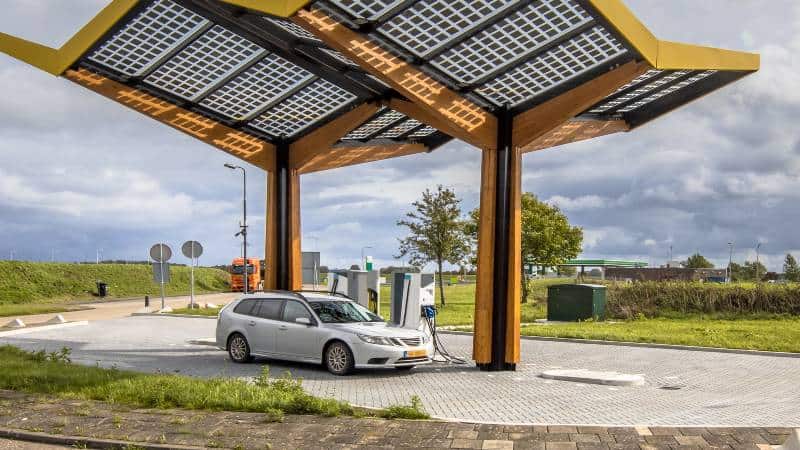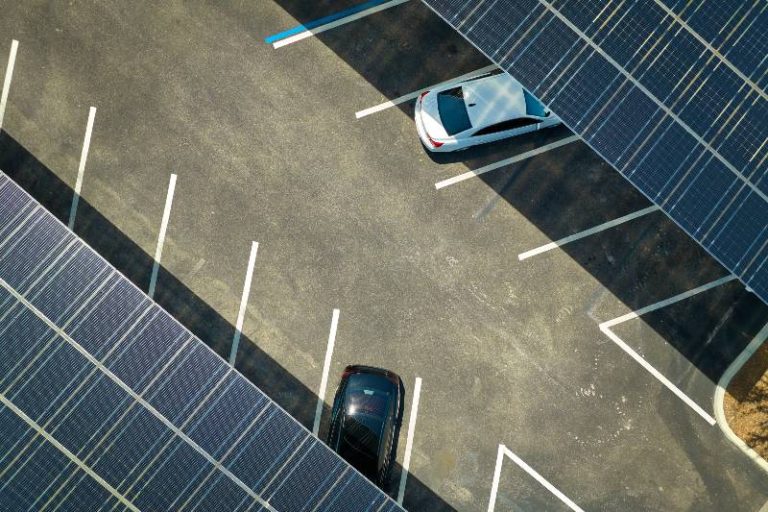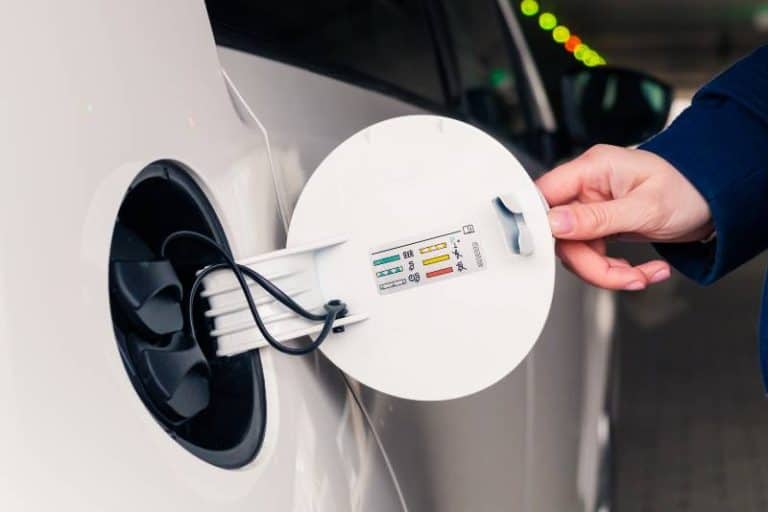Electric Cars: How Far Can They Go on a Single Charge?
Electric vehicles are becoming more and more popular each year. But how many miles can an electric car go? How far can they go on a single charge? In this blog post, we will explore the real range of electric cars and answer some common questions about them. We will also discuss extending your car’s range by using charging stations and other methods. So, if you’re interested in learning more about electric cars, keep reading!
If you have a battery-electric vehicle (BEV) or a hybrid electric vehicle (HEV), your answer will be different (HEV). The typical range of today’s all-electric BEVs is 250 miles. Newer vehicles, however, from illustrious manufacturers like Tesla and Mercedes, may travel up to 600 kilometers on a single charge. A hybrid electric vehicle (HEV) is a car that combines the advantages of a traditional car with those of a more recent generation.
Key Takeaways
- Electric cars have a range of 160 km (100 miles) on a single charge.
- Certain versions can travel up to 322 km (200 miles). But, the range of some EVs can go up to 480 kilometers (300 miles).
- The range of an electric car depends on its battery size, the energy efficiency of the motor, and other factors. By understanding the real range of electric vehicles and taking measures to extend it, you can enjoy a comfortable journey with them.

Electric Car (EV) ranges are increasing
Electric cars are becoming more and more popular, and their range is increasing too! This is due to advances in battery technology and other factors.
How far can an electric car go?
In the present day, the typical range of a full-electric BEV is 250 miles. Newer vehicles, however, from illustrious manufacturers like Tesla and Mercedes, may travel up to 600 kilometers on a single charge.
EV with the longest range
Currently, Tesla’s Model S Long Range Plus has the longest range of any EV at 652 kilometers (405 miles). The arrival of Tesla’s new Cybertruck, which is rumored to have a range of 800+ km (500+ miles), and the competition will determine whether or not Tesla can maintain its lead in this category, which it has had since 2012.
Mercedes, Ford, Jaguar, and Porsche have been rapidly catching up to Tesla in the electric vehicle market. In addition, various other newcomers — Rivian supported by Amazon EV startup; Lucid Motors from Silicon Valley; Lightyear One crafting long-range solar electric vehicles from Holland; and NIO dominating China’s current EV landscape — are all diligently working towards improving their range capacity which is often viewed as a sign of superior EV technology.
We can be confident that this figure will keep climbing until it is competitive with the range of a conventional internal combustion engine (ICE) vehicle.
EV average range
Over the past decade, the average range of electric vehicles has risen considerably. In 2011, the market offered only three distinct models of all-electric vehicles, with EPA-reported maximum driving ranges ranging from 100 km to 150 km (63 to 94 miles). In the present day, the figure is closer to 326 km (202 miles) on a single charge.
EV with the shortest range?
Generally speaking, vehicles that are more sizable can accommodate larger batteries. The same holds true in the opposite direction; smaller city cars like the Smart Fortwo EQ have a limited range of only 84 miles on a single charge, making them unsuitable for extended journeys and consequently less expensive to operate due to their nimble design and ability to fit into small parking spots.
However, at a charging speed of 22 kW, a full charge would take only 40 minutes, which is substantially less than the time required to charge an EV with a larger battery.
Factors that Affect Electric Car Range
Battery size and type
The size of the battery in an electric car will affect its range. the more power it can store and release during recharging, which means that your vehicle can go farther on one charge.
The type of battery used for EVs also affects how far they can travel on a single charge. Lithium-ion batteries are commonly found in most modern EVs; these batteries use lithium ions to move electrons from one end of their molecules to another.
In short, the distance traveled depends on how much energy is stored. The capacity of an EV battery pack capacity is measured in kilowatt-hours. The higher the number, the more miles it can carry.
Vehicle weight and aerodynamics
Now that electric cars are here, people are concerned about how much range they could go. With every kWh/m of energy consumption reduced, the vehicle becomes more cost-effective (requiring fewer battery cells to travel the same distance), more space-efficient (less battery weight), and more efficient (less weight means lower rolling resistance).
Many potential purchasers are discouraged by the vehicle’s limited range, although aerodynamics can help. The more aerodynamic a vehicle is, the further it can travel on the same amount of battery.
Climate and driving conditions
The weather in your area will have a huge effect on how much power your vehicle needs to operate, and thus, how far it can go on a single charge. If you live in an area with very cold winters, you’ll need to run heaters and defrosters more often than if you lived somewhere warm year-round.
Driving habits and style
Similarly, driving habits and style play a big role in how much energy your car uses. Driving on flat roads with little traffic will use less electricity than driving through mountains or around tight corners at high speeds while trying to pass other cars.
If you’re thinking of how long electric cars last vs gas cars, make sure to read an article that I wrote about it here, this will help you in understanding the difference between electric cars and gas cars.
Tips for Maximizing Electric Car Range
Charging the battery regularly and fully
Charging the battery regularly and fully is one of the most important things you can do to maximize your electric car’s range. By charging your car before you leave for work, or before you go out on a road trip, you can make sure that your battery has been fully charged for longer periods of time.
Reducing unnecessary weight in the car
It’s easy to forget about the weight of your car, but it can have a huge impact on how much energy your electric vehicle uses. The heavier your car, the more power it will take to move it around. If you can reduce the weight in your vehicle by removing unnecessary items and packing only what is essential for your trip, you’ll improve its efficiency.
Using energy-saving features like eco mode
When you’re driving an electric vehicle, it’s important to use the features that help you save energy. For example, many new cars have an “eco” mode or “smart” mode that will automatically adjust your speed and acceleration based on how much power is available in your battery. By using these features, you can extend the distance that your car can travel on a single charge.
Planning routes to minimize hills and other factors that drain the battery
A car’s electric battery drains quickly if you’re driving uphill or in headwinds because these conditions require more energy than driving on flat terrain at a steady speed. If possible, choose routes that avoid hills or other factors that can drain your battery. You can also plan ahead for situations where you’ll need to drive up steep grades and save some of the power in your battery before starting the climb.
Ranges of Popular EVs in the US
1. Tesla Model S Long Range
New for 2018, the Model S Long Range has a top speed of 155 mph, can reach 0-60 mph in 3.1 seconds, and has an estimated maximum range of 405 miles from the EPA. When Tesla updated its Model S electric vehicle in 2021, it did away with the Performance trim level.
2. Ford Mustang Mach-E
Ford estimates the 2023 Mustang Mach-range E’s to be between 224 and 312 miles, however, this will vary with the EV’s battery pack capacity and the specifics of its electric motor setup. This pales in comparison to Tesla’s top-of-the-line long-range vehicles.
Each model is equipped with a portable charger that can add up to 30 miles of EV’s range in a single night when connected to a 120-volt outlet, and up to 80 percent of battery life when connected to a 240-volt outlet. An overnight charge of 32 miles is possible at a Ford charge station, which may be ordered online and installed by licensed electricians.
3. Tesla Model 3
The Model 3 comes in three different versions, each of which has a different EPA-estimated range. The lowest-priced option is the rear-wheel-drive base model, which can supposedly travel 272 kilometers on a single charge. Model 3’s expected range increases from 315 miles to an astonishing 358 miles when upgraded to either the Long Range or Performance versions.
However, as we discovered with our extensive Long Range Model 3 test vehicle, this range is no easy feat.
Tesla’s Model 3 can be powered up in myriad ways: the Supercharger network of ultra-fast charging stations, adaptors for public DC outlets, standard 240 or 120-volt plugs, and even a home charger.
4. Chevrolet bolt
The Bolt EV has an overall EPA range rating of 259 miles, although its range rating on the highway is slightly lower at 233.4 miles. When we conduct our range testing, we almost always utilize the EPA highway rating as a comparison standard since we believe that this rating should be more indicative of the highway driving at 70 mph than we do.
5. Hyundai Ioniq
EPA estimates that the 2023 IONIQ 5 SE/SEL/Limited RWD will have a driving range of 303 miles, while the IONIQ 5 SE/SEL/Limited AWD will have a driving range of 266 miles, and the IONIQ 5 SE RWD will have a driving range of 220 miles (Standard Range). Estimates provided by the EPA, with all numbers assuming a battery that has been fully charged. purely for the purpose of comparison.
How Many Miles Can An Electric Car Go FAQs
Are electric cars good for long-distance travel?
You can travel the entire country in an electric vehicle, but you have to be careful about finding charging facilities in less populous places. Chargers are normally not difficult to locate in bigger cities; however, one may have difficulty finding them in more distant places and along highways with lower traffic volumes. As long as you prepare in advance and allot yourself an appropriate amount of time, you should be alright.
Is it possible to drive an electric car across the country?
You can travel the entire country in an electric vehicle, but you should be aware that it may be more difficult to find charging outlets in rural areas. Chargers are normally not difficult to locate in major cities; however, in more distant places and along roads with less traffic, you may have a harder time finding them. As long as you are organized and set aside sufficient time in your schedule, you should be good.
What is a good range for an electric car?
Electric cars of today typically have a range of between 150 and 300 miles on a single charge, which ought to be more than sufficient for drivers who only sometimes travel long distances as well as those who travel such distances regularly for business.
Do electric cars lose range over time?
In point of fact, it is currently predicted that electric vehicles lose an annual average of 2.3% of their battery capacity. To put it into perspective for you, if you buy an electric vehicle today that has a range of 240 kilometers (150 miles), you will only have lost roughly 27 kilometers (17 miles) of usable range after five years.
How much does it cost to go 500 miles in an electric car?
If you drive 500 miles in an electric vehicle, you will spend less than $17 in total. (It is highly likely that you will need to charge it twice in order to get that range.)
Conclusion
Electric cars have come a long way in terms of range and affordability. All the models discussed above offer impressive driving ranges, which should be able to meet most people’s needs. On top of that, charging is becoming increasingly accessible, with more and more public chargers being installed across the country. So if you’re looking for an eco-friendly and economical option, electric cars are a great choice.
Additionally, with the help of FAQs, you can gain more clarity about how an EV works and which one is best for your needs. So don’t hesitate to do your research and ask questions before taking the plunge!






